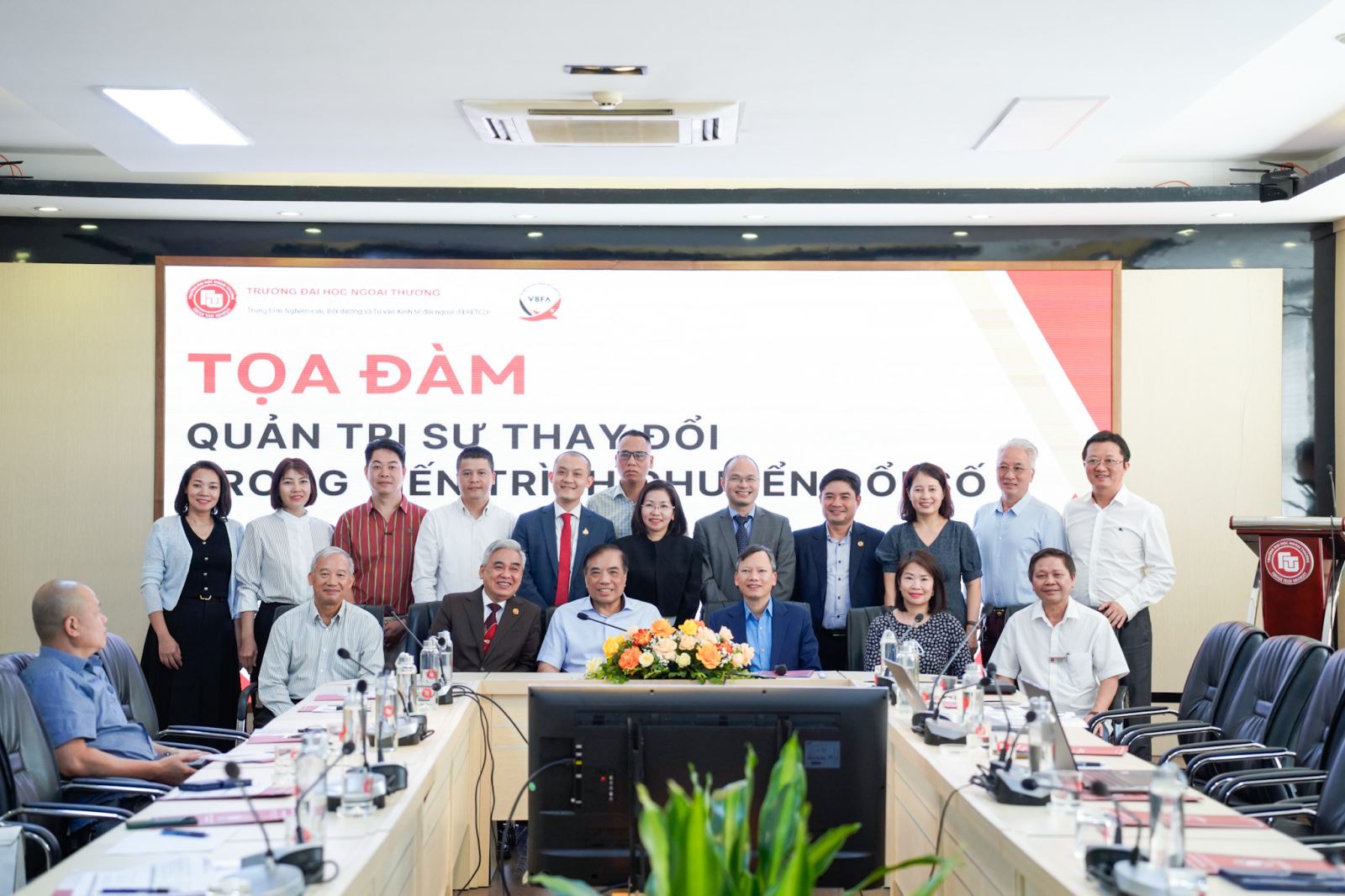(As prepared)
Elevating U.S.-Vietnam Educational Collaboration
July 11, 2024
Students, faculty, administrators, and guests,
Good morning and thank you for welcoming me here today at the National Economics University. It is wonderful to see such a tremendous audience today. Let me begin by congratulating Boise State University and NEU on 30 years of successful educational collaboration.
Hiền tài là nguyên khí quốc gia (Talent is the resource of the nation).
In Vietnam’s history, from the time of Lê Thánh Tông until now, great scholars like Nguyễn Du, Đặng Phong, and Ngô Bảo Châu have made significant contributions to the development of this nation and have had a lasting and global impact.
Similarly, in the United States, Americans like Henry David Thoreau, Katherine Johnson, and Neil deGrasse Tyson have proudly carried on America’s own intellectual tradition for the betterment of the United States and the world.
The bridging of the great intellectual and educational traditions of our two countries was in mind when our leaders, President Biden and General Secretary Nguyễn Phú Trọng, convened last September to elevate the relationship between the United States and Vietnam to a Comprehensive Strategic Partnership. In their joint statement, they encouraged the opening of the doors of U.S. and Vietnamese universities and laboratories to share best practices, scientific advances, and educational opportunities with each other, and to foster exchanges for the benefit of both our nations.
In the spirit of our Comprehensive Strategic Partnership, I am delighted to speak at National Economics University about deepening exchanges and collaborations between Vietnamese institutes of higher education and the United States.
There is perhaps no better proof of NEU’s success to date in internationalizing higher education than the presence here today of the delegation from Boise State University, led by President Marlene Tromp. NEU’s longstanding relationship with Boise State University – going back to 1992 – serves as a testament to the fundamental strength of the relationship between the United States and Vietnam. Even before our two countries normalized diplomatic relations, university administrators, faculty, researchers, and students realized the value and opportunity present in the formation of educational ties between the United States and Vietnam.
Both NEU and Boise State University saw – and continue to see – the importance of investing in each other, and your efforts have been essential to not only achieving important educational objectives, but also contributing to the broader foundations of our bilateral relationship overall.
When I last spoke here at NEU, in September, it was less than two weeks after the United States and Vietnam elevated our relationship to a Comprehensive Strategic Partnership. This momentous step was the product of years of hard work, courage, and respect on the part of a sweeping chorus of voices eager to see our two countries come together and work toward shared goals. U.S. and Vietnamese institutes of higher education have been at the core of those efforts as they work with each other. Through their cooperative efforts, they have deepened people-to-people ties and contributed to outstanding gains in building mutual trust and understanding between the peoples of our two countries.
Today, I am here to tell you that the internationalization of education, through faculty exchanges, joint degree programs, joint research initiatives, and student exchange, will enable the United States and Vietnam to realize our shared goals.
When international students and scholars come to the United States – and when Americans study abroad – they bring their talents, perspectives, and cultures to their new communities. And when they work with peers to advance research and knowledge, they spark innovation and forge bonds across borders that can last a lifetime.
The United States is proud that we remain a top destination for international students, with nearly one million international students choosing to study in our country each year. We are also proud that Vietnam is now the fifth-highest sender of students to the United States, with nearly 30,000 Vietnamese students currently studying in the United States, including many students from NEU.
However, our goal is not only to grow the number of Vietnamese students in the United States, but also to increase two-way exchange and get more U.S. schools, researchers, and students to Vietnam.
The U.S. Mission has undertaken several efforts to increase academic and research collaboration between U.S. and Vietnamese academics, researchers, and students. A new multi-year higher education initiative will support collaboration between U.S. and Vietnamese institutions in key areas such as semiconductors, AI, cybersecurity, automation and robotics, biotechnology, clean energy, and legal education.
The United States has also launched a new scholarship for Vietnam – the Fulbright Vietnamese Student Research Program – which provides opportunities for Vietnamese students to advance their research in science and technology at U.S. institutions.
We are also expanding expert exchanges on workforce development for higher education institutions. Last year, the United States launched a new visa program for paid training for students in STEM fields. Each year, the U.S. Embassy works with the Ministry of Education and Training to place U.S. academics and researchers at institutions across Vietnam.
The education partnership between our two countries is growing, and the sky is the limit. But there is so much more that can be done to expand collaboration between U.S. and Vietnamese institutions. In order to achieve this, there are three barriers that need to be overcome.
First, while many institutions want to do “more” with U.S. higher education institutions, they must clearly define what “more” is and how it aligns with their own priorities and that of their identified partner institution. For partnerships and collaboration to be sustainable, both sides must identify and agree upon defined goals for the sustainable internationalization of their educational initiatives and programs.
Second, collaboration must be mutually beneficial, and therefore difficult questions regarding financing, course credit, academic regulations, and each partner’s responsibilities must be addressed early on. Successful academic partnerships take time to build because they require a long-term commitment and trust. We have seen that the most successful models of internationalization start when universities on both sides embark on a small project focused on a specific type of faculty or student exchange, and then build on the success of that initial exchange.
Third, to achieve optimal outcomes amid the ever-changing educational and economic landscapes of our societies, it imperative that both sides maintain the same energy and vigor for the long term after they establish a partnership. This requires a continuous process of evaluation and dialogue so that cooperation can maintain relevance and respond to the needs of both partners. Additionally, educational partnerships and exchanges will thrive more fully as a result of pursuing active dialogue with other stakeholders, particularly in the private sector, to better align institutional goals and educational outcomes with market demands.
Fittingly, our host, NEU, is one of the most active Vietnamese institutions in developing joint programs with U.S. partners, promoting mutual understanding between our two countries, and giving students an extra advantage in preparing for their future careers. I understand that many teachers and administrators here have dedicated their professional lives to developing such programs and opportunities for their students. We know how much work goes into establishing and managing these programs, and we are grateful for your efforts. We hope you continue to share your expertise with other universities and programs in Vietnam that want to pursue similar efforts.
Vietnam is well poised to expand its partnerships with U.S. institutions, and the United States Mission to Vietnam is your partner in that process.
To the students here, I hope you will consider the enormous potential you have to contribute to our bilateral relationship, drawing on the knowledge and skills you have already acquired and will continue to develop. Whether you are working in the public or private sector, you are having a real impact on the issues that matter to both the United States and Vietnam. You are the partners with whom we interact every day in our diplomatic work, the source of new ideas, and the people with the know-how and drive to get things done.
And to Boise State, we appreciate your efforts to provide your students with skills in strategically important industries that connect the global world to a local context. This kind of partnership is a great sign for the future of both of our countries.
Through a unified pursuit of excellence, the U.S.-Vietnam educational relationship can reach unbelievable heights. The accomplishments of both Americans and Vietnamese alike can create a global impact. So, if you’d let me, I offer an addition to the Vietnamese phrase I mentioned earlier, that is inscribed at the Temple of Literature: Hiền tài là nguyên khí quốc gia và thế giới. (Talents are the vital strength of a nation and the world.)
Thank you. I look forward to your questions and comments.






